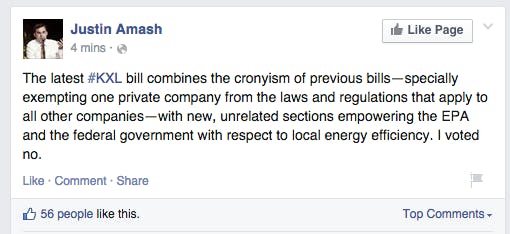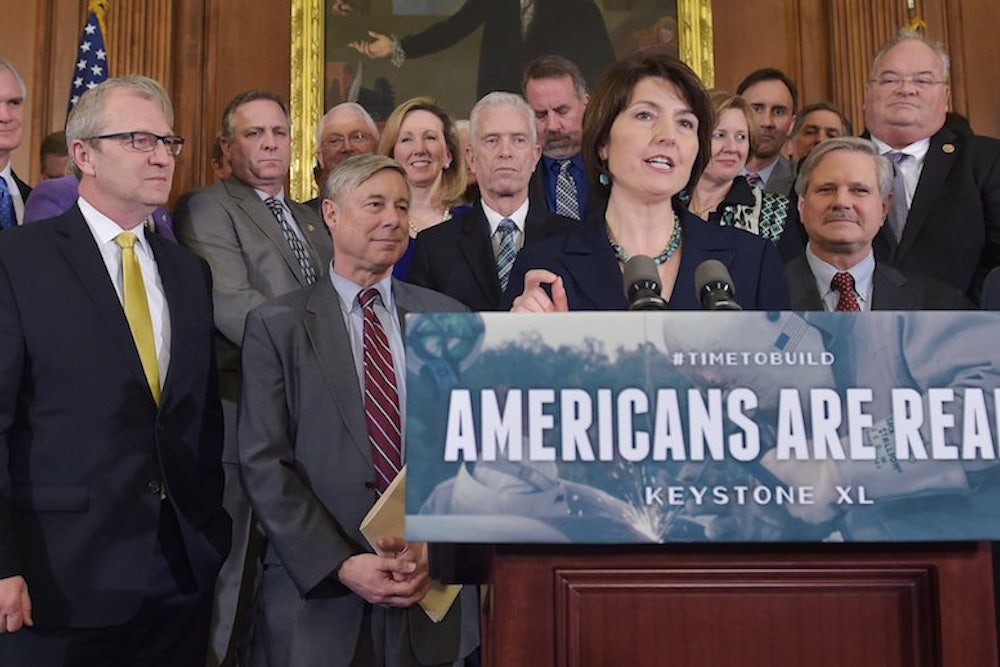On Wednesday, the House of Representatives passed a bill approving the Keystone XL pipeline, 270 to 152. This is the eleventh time the House has passed this bill, but the first time it will go to President Barack Obama’s desk. (The Senate passed its version of the Keystone bill last month.) Obama has already warned he will veto it.
Only one Republican in both the House or Senate voted against approving construction for the Keystone XL pipeline. That was Representative Justin Amash, a Republican representing Michigan. “The latest #KXL bill combines the cronyism of previous bills—specially exempting one private company from the laws and regulations that apply to all other companies—with new, unrelated sections empowering the EPA and the federal government with respect to local energy efficiency,” he posted on Facebook following the vote.

Amash’s point is that Congress has no place exempting a single corporation from all the usual regulations and review steps that apply to private projects. (One corporation that stands to benefit from the bill and its amendments is Koch Industries.) He elaborated on this the last time the House voted to approve Keystone, a few weeks ago. Amash said he was “present” but didn’t vote yes on the bill, explaining he supports Keystone XL on its merits. “It’s improper, however, for Congress to write a bill that names and benefits one private project, while doing nothing to address the underlying problems that allowed such delays to occur,” he wrote. “The Constitution gives Congress the power 'to regulate Commerce with foreign Nations,' but the Rule of Law requires that legislation be of general, not specific, applicability.”
President Barack Obama has made a similar point in the past. It’s actually Obama's reasoning for issuing a veto of the bill—that Congress is overstepping its authority by forcing the pipeline’s approval. “This Keystone project is undergoing review at the State Department,” White House spokesman Eric Schultz said in January. “That is a process that long predates this administration. So we are opposed to any legislative maneuver that would circumvent that process.”
Amash disagrees with Obama on some details, of course, like the value of the pipeline and wanting fewer regulations for oil and gas projects. Still, the president and the Republican congressman agree on the main point: This bill does nothing but appease special interests.
